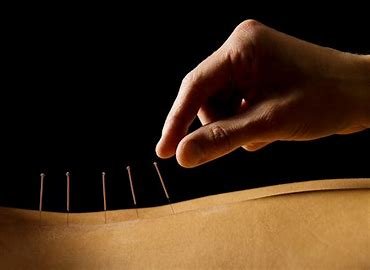Introduction
Acupuncture has long been used in traditional Chinese medicine (TCM) for various health conditions, including fertility issues. In recent years, scientific research has sought to determine whether acupuncture for fertility truly enhances conception rates, particularly for couples facing infertility challenges. This article delves into the latest studies, analyzing the data behind acupuncture’s effectiveness in aiding fertility treatments such as in vitro fertilization (IVF) and natural conception.
Understanding
Acupuncture involves inserting fine needles at specific points on the body to regulate the flow of Qi (energy) and improve overall health. When it comes to fertility, acupuncture is believed to:
- Improve blood circulation to the reproductive organs
- Balance hormonal levels
- Reduce stress and anxiety, which can impact conception
- Enhance the effectiveness of assisted reproductive technologies (ART) like IVF
Recent Scientific Studies
1. Acupuncture and IVF Success Rates
One of the most researched aspects of acupuncture for fertility is its impact on IVF success rates. A 2023 systematic review and meta-analysis published in Reproductive Biomedicine Online examined 27 randomized controlled trials (RCTs) involving over 6,000 women undergoing IVF. The study found that:
- Women receiving acupuncture had a 28% higher pregnancy rate compared to those who did not receive acupuncture.
- Acupuncture before and after embryo transfer led to a significant increase in live birth rates.
- Reduced stress and improved endometrial receptivity were noted as key benefits.
2. Acupuncture for Unexplained Infertility
A 2022 study in Fertility and Sterility evaluated the impact of acupuncture on couples diagnosed with unexplained infertility. The findings suggested that:
- 51% of women who underwent acupuncture for three months conceived naturally, compared to 36% in the control group.
- Acupuncture was found to regulate menstrual cycles and improve ovulatory function.
- The treatment also helped reduce cortisol levels, which can negatively affect conception.
3. Hormonal Balance and Ovulation
A 2021 clinical trial published in the Journal of Integrative Medicine explored how acupuncture influences hormone levels in women with polycystic ovary syndrome (PCOS), a common cause of infertility. The study reported that:
- Acupuncture significantly reduced luteinizing hormone (LH) and testosterone levels, helping restore ovulatory cycles.
- Over 60% of participants resumed regular ovulation after three months of acupuncture treatment.
- Insulin resistance, a key factor in PCOS-related infertility, was also reduced.
4. Acupuncture and Male Fertility
While much of the research focuses on female fertility, a 2023 study in Andrology investigated acupuncture’s effect on male fertility. Key findings included:
- A 29% improvement in sperm motility was observed in men who received acupuncture for 10 weeks.
- Acupuncture helped increase sperm concentration and morphology.
- Reduced oxidative stress levels were noted, contributing to better sperm health.
How Acupuncture Works for Fertility
The mechanism behind acupuncture’s effectiveness for fertility is still under study, but researchers propose several theories:
- Enhanced Blood Flow: Acupuncture increases blood circulation to the ovaries and uterus, creating a more favorable environment for implantation.
- Hormonal Regulation: It stimulates the hypothalamic-pituitary-ovarian axis, helping balance reproductive hormones.
- Reduction of Stress and Anxiety: By modulating cortisol and beta-endorphin levels, acupuncture promotes relaxation, reducing the negative impact of stress on fertility.
- Improved Egg and Sperm Quality: Some evidence suggests acupuncture may influence mitochondrial function, essential for egg and sperm quality.
Combining Acupuncture with Conventional Fertility Treatments
Many fertility specialists recommend combining acupuncture with conventional treatments such as IVF or intrauterine insemination (IUI). A 2022 study in Human Reproduction found that acupuncture performed before and after embryo transfer increased implantation rates by 32%. Patients undergoing fertility treatments may benefit from weekly acupuncture sessions leading up to their procedures.
FAQs About Acupuncture for Fertility
1. How long does it take for acupuncture to work for fertility?
Most experts recommend three to six months of consistent acupuncture treatment before expecting noticeable results.
2. Is acupuncture safe during pregnancy?
Yes, when performed by a qualified acupuncturist, acupuncture is generally safe during pregnancy and may help with morning sickness and stress.
3. Can acupuncture help with conditions like endometriosis or PCOS?
Studies suggest that acupuncture can help manage endometriosis pain and regulate hormones in PCOS patients, improving fertility outcomes.
4. Does acupuncture hurt?
Most people experience minimal discomfort, often describing the sensation as a slight tingling or warmth.
5. How often should I get acupuncture for fertility?
Typically, one to two sessions per week are recommended, depending on individual needs and treatment plans.
Conclusion
The latest scientific studies provide compelling evidence that acupuncture for fertility can improve conception rates, particularly for couples undergoing IVF or struggling with infertility. While more research is needed to fully understand its mechanisms, acupuncture’s benefits in stress reduction, hormonal balance, and reproductive health are well-documented. If you are considering acupuncture for fertility, consult with a licensed acupuncturist specializing in reproductive health.
Are you ready to explore how acupuncture can support your fertility journey?











Leave a Reply